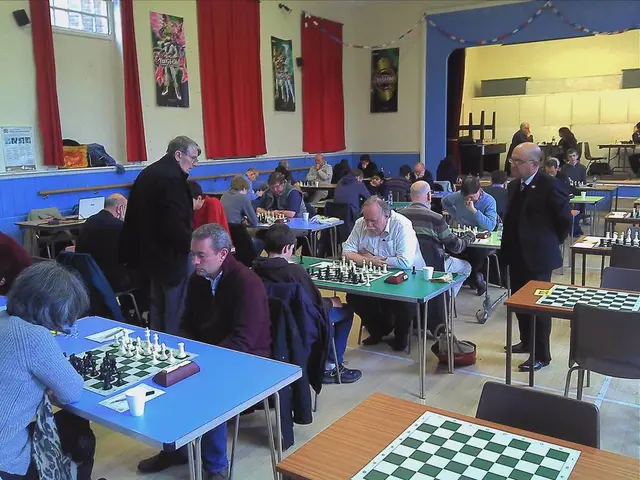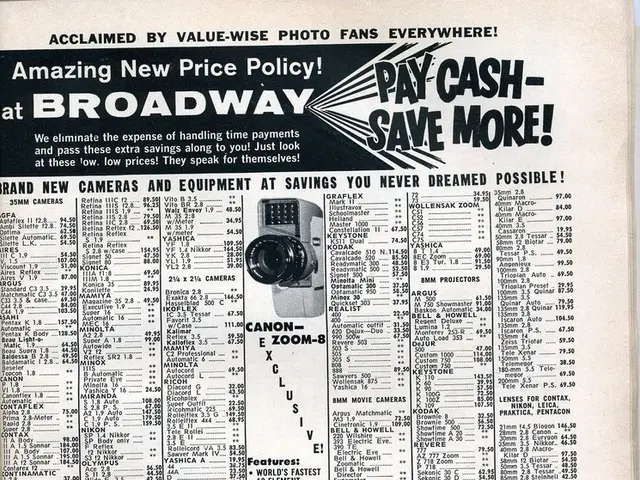Are local casinos at risk of becoming obsolete?
================================================================
In the ever-changing landscape of entertainment, the casino industry is undergoing a significant transformation. While the rise of online casinos has been a topic of discussion, it's essential to understand that traditional casinos are not becoming obsolete but are adapting to the digital age.
Online casinos, with their convenience and accessibility, are attracting a younger, tech-savvy demographic. The growing preference for digital platforms is evident in the 12.3% year-over-year increase in iGaming revenue in Pennsylvania alone [1][2][3]. However, traditional casinos, despite a slight decline in slot and table game revenue in some regions, continue to generate substantial revenue and have seen growth in many areas [1][3].
One of the key factors driving the popularity of online casinos is the convenience they offer. With no dress code, entrance fee, or travel requirements, online casinos provide an appealing alternative to traditional casinos. Moreover, the shift towards digital wallets and instant payouts further cements the appeal of digital casinos [1][4].
However, it's not just about convenience. Online casinos offer a wide array of features that cater to the needs of the new generation of players, aged 18 to 35. This demographic seeks immediate availability, personalization, and mobility in their gambling experience [2].
To stay competitive, traditional casinos are innovating and adapting their business models and service offerings. For instance, the integration of Virtual Reality technology could allow for detailed models of famous casinos to be streamed online, bridging the gap between the physical and digital worlds [3].
Regional variations exist, with some states reporting declines in traditional casino revenue while others experience significant growth, indicating a complex and evolving competitive landscape [3]. In Germany, for example, casinos are often built near borders to boost tourism and attract players from neighbouring countries [3].
As society's desire for safety, hygiene, and distance increases due to the pandemic, online casinos have become increasingly attractive. Trust in digital systems is often higher than in traditional casinos for many players, making online gambling a preferred choice [4].
However, the online casino industry is not without its challenges. Smaller land-based casinos may face difficulties in the coming years and should consider adapting to the new times [3]. Moreover, the industry can establish itself as a green industry by looking into ways to reduce its carbon footprint [3].
In conclusion, the rise of online casinos is reshaping the casino industry, causing shifts in market share and consumer behavior. However, traditional casinos are evolving in response and continue to play a significant role within the broader gaming ecosystem [1][2][3][4]. Whether it's the thrill of live blackjack and roulette from home or the top-class entertainment offered by traditional casinos in cities like Las Vegas, Macau, Monaco, and Baden-Baden, the future of gambling lies in a harmonious blend of the traditional and the digital.
References:
[1] GamblingCompliance. (2021). U.S. iGaming Market Report 2021. Retrieved from https://www.gamblingcompliance.com/
[2] American Gaming Association. (2021). AGA Industry Report. Retrieved from https://www.americangaming.org/
[3] Pennsylvania Gaming Control Board. (2021). Pennsylvania Casino Revenue Reports. Retrieved from https://www.gamingcontrolboard.pa.gov/
[4] Eilers & Krejcik Gaming. (2021). U.S. Digital Gaming Market Report 2021. Retrieved from https://www.ekgamingllc.com/
Casinos, both traditional and online, are evolving to cater to the changing trends in gambling, with the convenience and accessibility of casino-games online increasingly attracting the younger, tech-savvy demographic. In response, conventional casinos are innovating, integrating technologies like Virtual Reality, to bridge the gap between the physical and digital worlds in the casino-and-gambling industry.








